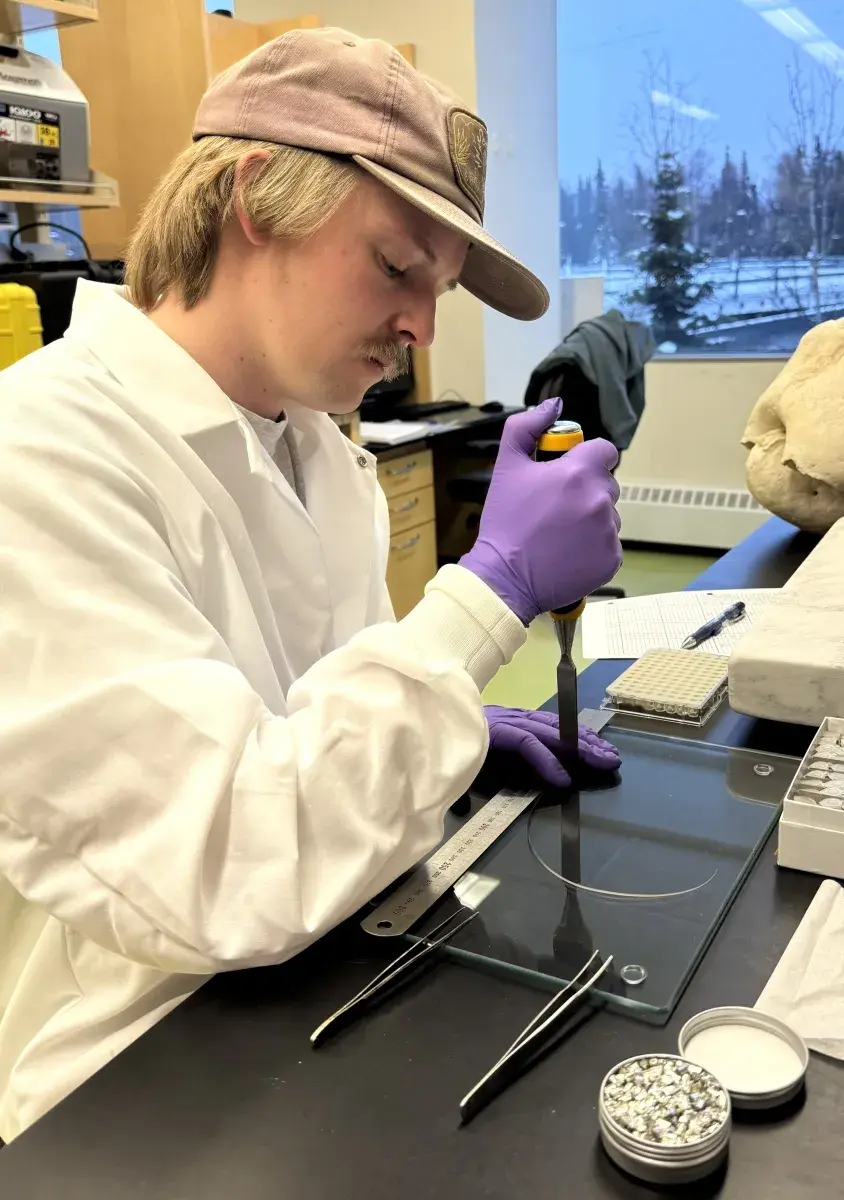BRAIDED Mercury Monitoring Video
- abishop
- Nov 18, 2024
- 2 min read
While a lot of the research we do in the Bishop Lab deals with studying marine animals and food-webs; It is important to remember humans are a part of that system too! We mentioned the BRAIDED project in a blog post this spring, and now want to share this great video put together by Lizi Byrd and Benjamin Peterson, two graduate students in the Bishop Lab, that highlights some of our activities since then!
Background Recap:
Access to healthy, safe food resources is challenging for coastal Alaskan communities, many of which are predominantly Alaska Native. Traditional wild foods, such as berries, plants, fish, and marine mammals are critical for nutritional and cultural health; and for families and future generations, they also represent a foundation for practicing traditional customs, language, stewardship, and self-governance. Community members and village Elders around the Arctic have voiced concerns in the face of climate change and pollution that environmental toxicants such as mercury are a threat to traditional wild foods. Current practices for monitoring food safety include sending samples out to research or agency labs for testing. But the uncertainties that arise due to lags in information sharing may result in the avoidance of consumption of traditional foods, even if contaminants are not presently a threat.

Photo Credit: S. Crawford
The Aleut Community of St. Paul Island Tribal government has co-Leading the BRAIDED project with the Bishop Lab (UAA), Dr. Ruby Fried (UAA) and METAL (UAF). "BRAIDED" stands for Building Research Aligned with Indigenous Determination, Equity, and Decision-Making, but also highlights our approach to addressing food safety which includes centering Indigenous communities as leaders and anchoring the analytical, personnel, and data infrastructure for monitoring within the community. In doing so, we are braiding together the cultural and nutritional dimensions of traditional foods and resource monitoring data to enhance place-based decision making and improve resilience.
This project is more than moving a lab to the island. Our collaborative approach of creating a Tribally-led Research Center, including practices that promote Indigenous Data sovereignty, will create a sustainable dialogue and opportunity for youth and elders and the entire community to engage in the conversation, lead the research, and have ownership in telling the story.




Comments